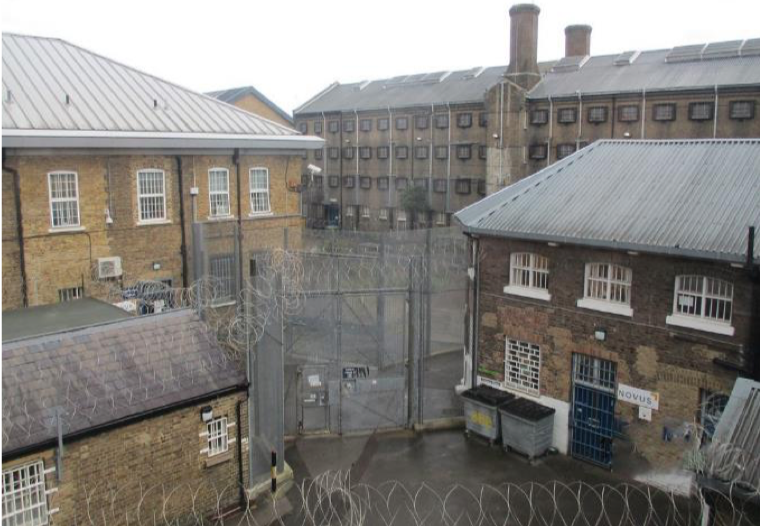In the most crowded category C prison in the country men are turning to drugs because they have ‘nothing constructive to do’.
In a response to the latest inspection of Brixton Prison, prison reform charity the Howard League have criticised the prison for locking men up ‘for hours on end’ in ‘dirty overcrowded cells’.
Andrea Coomber, head of the charity, said: ‘If someone is sent to prison, we should do all that we can to support them to move on from crime and live healthily.
‘Brixton is doing the opposite, with hundreds of men locked up for hours on end in dirty, overcrowded cells and turning to drugs when they should be getting training and employment.’
In an inspection report released today, His Majesty’s Inspector of Prisons (HMIP) revealed despite holding men convicted of sexual offences, Brixton prison is failing to prepare prisoners for their release back into the community. It said there were no accredited offender behaviour programmes and this ‘hampered work to reduce risk’.
At the time of the inspection the employment hub and employment advisory board were closed, so no prisoners were being offered work placements, and none were being released on temporary license.
The overcrowding in Brixton means as many as 66% of prisoners share a cell dedigned for one person, and many were only allowed out of these cells for 45 minuted a day to shower and go outside.
Because of the lack of meaningful activity, the inspection found many prisoners were turning to drugs, with 42% telling inspectors it was ‘easy’ to get illicit substances.
HM Chief Inspector of Prisons, Charlie Taylor, said in a statement: ‘There is no doubt that Brixton faces unique challenges as an inner-city category C jail, but its location also offers unique advantages in terms of the wealth of local employment opportunities, which should have provided excellent opportunities for prisoners.
We met many dedicated staff at Brixton and found much to commend, but fundamentally the prison was failing to deliver on its intended role as a training and resettlement prison.’







